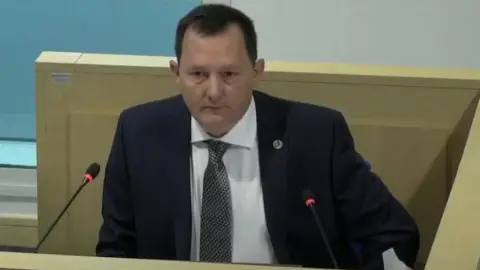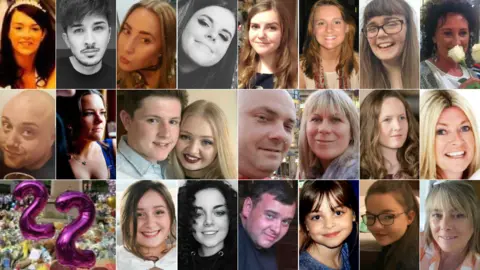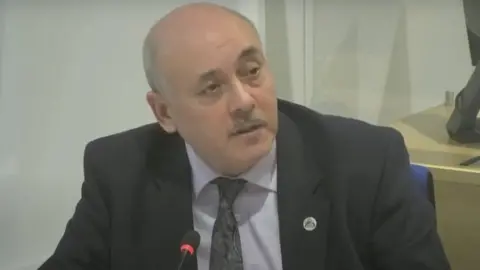Manchester Arena Inquiry: 'Not enough staff' to profile crowd
 MAI
MAIThere were not enough qualified staff "to adequately profile the crowd" when Manchester Arena was bombed, a security expert has told the attack inquiry.
Col Richard Latham said there were several issues with security on 22 May 2017, when a bomb killed 22 people.
He criticised CCTV monitoring and said venue operators SMG should have known about a blind spot used by the bomber.
Fellow expert Dr David BaMaung added that there were also not enough experienced police officers on duty.
Col Latham, who was reviewing all the security evidence heard by the inquiry so far with Dr BaMaung, told the hearing there were not enough security staff on duty on the night and an insufficient number were qualified to check bags "or to adequately profile the crowd".
He also said there was "not constant proactive monitoring" of CCTV and criticised SMG for not knowing about the CCTV blind spot.
 Family handouts
Family handoutsThe inquiry has previously heard Salman Abedi hid in an "out-of-the-way" place in the venue's City Room for an hour before he set off his bomb.
Dr BaMaung told the inquiry there were too few British Transport Police officers on duty and a lack of experience among those who were.
He said they had also been subject to "poor" supervision on the night.
He added that there were failures in the relationship between the venue's managers and the police's counter-terrorism security adviser in the years before the attack and not enough thought given to security in the City Room where the bombing happened.
Both experts also said SMG had breached a number of conditions of the arena's premises licence, including failing to take "all precautions as may be reasonably necessary to ensure the safety of spectators" and allowing non-licensed security staff to carry out bag checks.
 MAI
MAIEarlier, the inquiry had heard from senior SMG executive John Starkey, who apologised for failing to give the mother of bombing victim Martyn Hett "a clear answer" to questions about security in a meeting six months after the attack, and "the hurt that created".
Mr Starkey said he had "categorically" not been trying to avoid responsibility when he told Figen Murray the City "wasn't part of the arena" and had simply not been "prepared to go into the meeting to talk about security arrangements".
He also admitted the venue was trying to reduce security costs in the years before the attack, but denied that had been "penny-pinching".
The evidence was heard as it emerged the families of the victims had received a video call from the Duke of Cambridge during the day's proceedings.
One of those on the call said the conversation with Prince William had been "warm and genuine".
The inquiry continues.

Why not follow BBC North West on Facebook, Twitter and Instagram? You can also send story ideas to [email protected]
